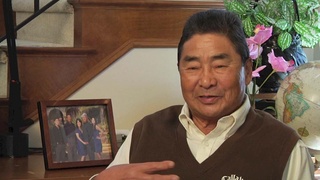Carrying on the Legacy in the Colony of Paraguay (Japanese)
(Japanese) In order to get through the tough times after World War II, many Japanese decided to leave for foreign countries. There is now a dilemma as to how to teach the children the Japanese spirit and the legacy their predecessors brought from Japan. Of course, the children born in the Japanese colony become citizens of Paraguay, but they are also allowed to keep their Japanese citizenship. Through this dual citizenship, these children should learn of Japanese culture through the Japanese language and keep hold of their valuable traditions. Within South America, Paraguay is probably the country that most values the Japanese language.
It rarely happens when I’m busy, but when I have some time on my hands, I find that I sometimes wish I could go back to Paraguay. 47 years of life in Paraguay, family, and 8 grandchildren call me back to Paraguay. I even have times when I wake up thinking it is all a dream. These feelings make me think that Paraguay is my second home and that my life is accustomed to life in Paraguay.
Date: March 24, 2009
Location: Tokyo, Japan
Interviewer: Alberto Matsumoto
Contributed by: Watase Media Arts Center, Japanese American National Museum
Explore More Videos








Postwar school-life
(b. 1930) Half Japanese and grew up in both Japan and the United States.

On Challenging Institutions
(1938-2020) Japanese American attorney and civil rights activist

Pop and Balls
(1938-2020) Japanese American attorney and civil rights activist

Re-examining Identity
(1941-2018) Japanese Canadian photojournalist and activist




